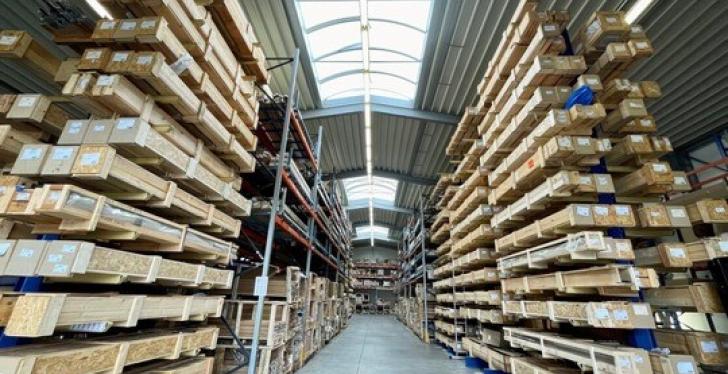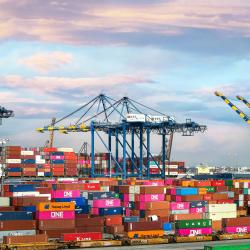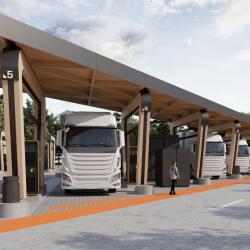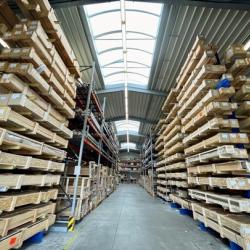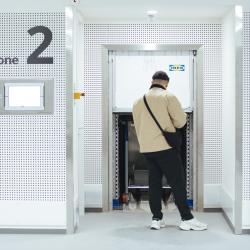Assortment: From procurement to the shelf thanks to automation?
How forecasting software could make everyday store life easier
Envato/Fasci
From the optimization of procurement and the movement of goods to the efficient organization of stores - every decision counts. In our interview with Ines Conzen from RELEX Solutions, we talk about how you can improve your store processes by relying on AI-supported software. True to the motto: optimize processes, reduce waste.

Ines, what do you think could work better in the store business?
I believe that the actual needs of a store are often overlooked. In retail, these vary considerably depending on the location of the store. A store in a residential area needs a different product range than one in an industrial area or in the countryside. Gaps on shelves can be avoided by retailers using artificial intelligence forecasting tools that make accurate order suggestions and tell them when they need which products.
But doesn't AI first have to learn in order to provide reliable support?
To take our solution as an example: If the data is available to retailers, you can feed the software with information from the last two or three years and then you can get started straight away. Of course, the AI continues to learn as it is used. Ultimately, it can not only make order suggestions for the product range, but also plan staff deployment and deliveries.
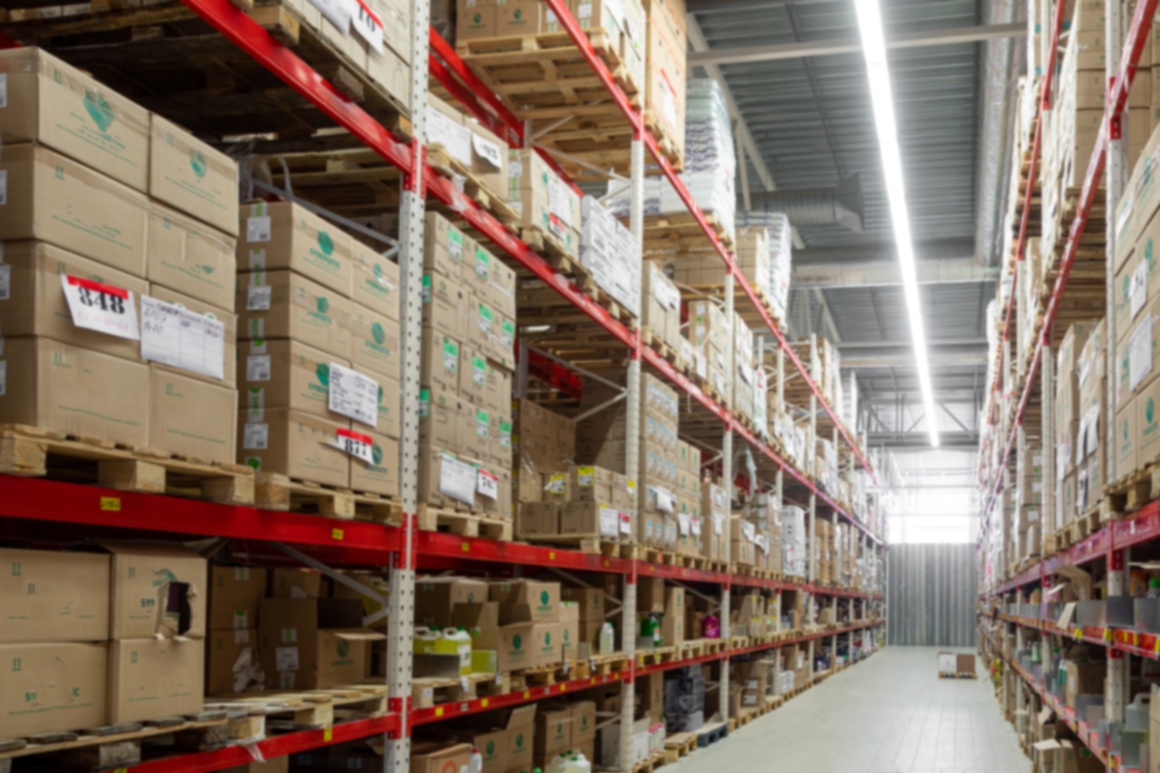
Do you have any specific examples of its use?
Almost all formats and sectors can benefit: Food retail, discount stores, DIY, electronic consumer goods and others. Bünting, for example, with its two food retail formats Combi and Famila, uses our Forecast & Replenishment and Space Management. Flink as Quik Commerce uses various options such as order suggestions and space management. Although they do not work with conventional stores, it is important that their product range is in the right place and not - as in stores - cherry yogurt next to the peach variety or all ketchup brands next to each other. This means that suppliers can quickly make mistakes and bring the wrong goods to customers. This should not happen. In our view, taking into account local product ranges, different formats and store sizes, as well as linking shelf planning with demand planning, is the ABC of retail planning. AI helps to better determine the variables in the equations, which leads to constantly improving results.
The delivery of goods also plays a decisive role in efficiency, right?
That's right, unnecessary journeys can and should be avoided. If the retailer specifies how the store is set up, pallets can be packed accordingly. It is also about sending full trucks and thus reducing transportation costs and CO2 emissions. To do this, it is important to create regularity and intelligently send dry goods such as pasta, flour or rice with the fresh goods that need to be delivered more frequently.
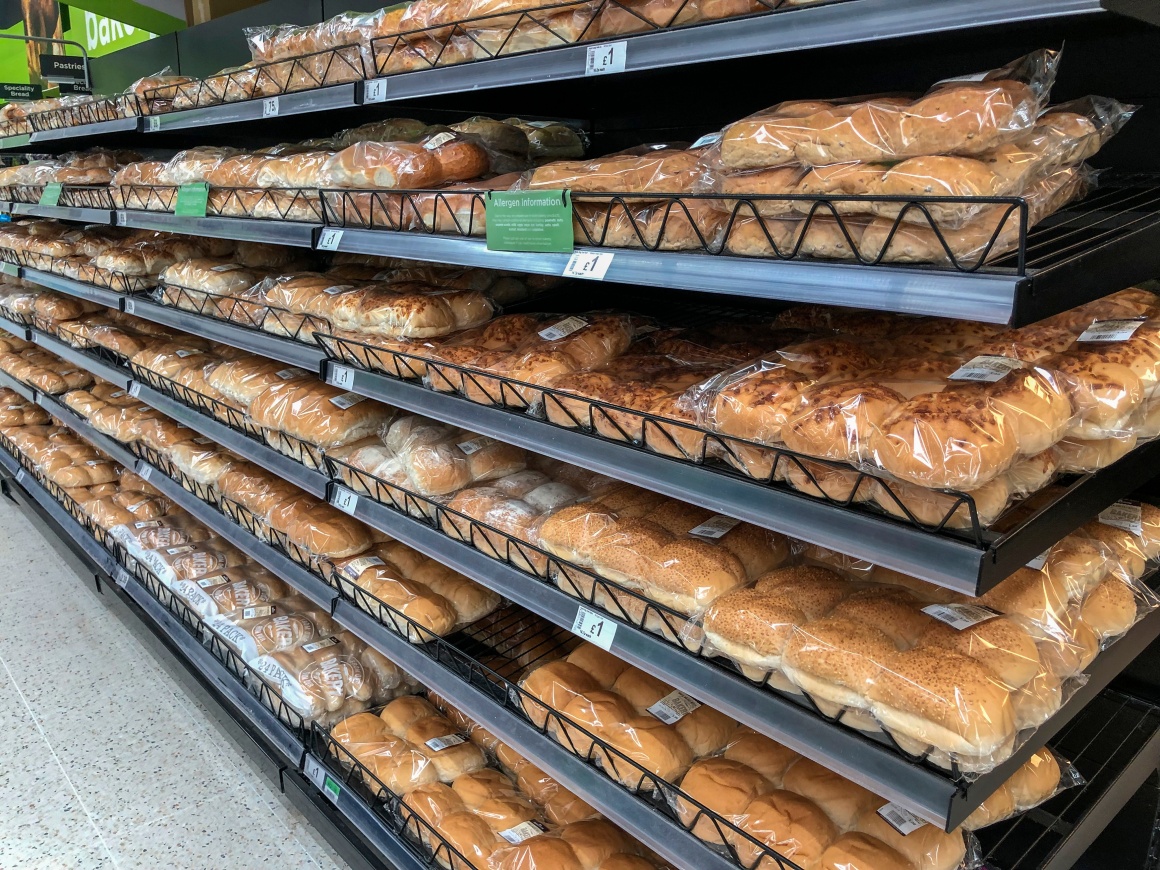
How do these tools change the daily work routine in the store?
Reorders no longer have to be made by staff. With the forecasting and replenishment tools, the processes are centralized and automated. This leaves staff with much more time for advice and other important tasks. It certainly takes a while for retailers to rely on the system, but no one has to walk through the shelves and end up ordering too much or too little.
Is automation suitable for every retailer?
This question has an almost philosophical dimension: where are we heading in the future? I think computing tasks can be better carried out by computers, whereas advice from people remains irreplaceable for me. For the tech-savvy, self-checkouts are a huge step forward in terms of minimizing time "lost" in the checkout area. For people who haven't grown up with this rapidly advancing technology, people should still be present and approachable in retail stores. That can be a real USP. Automation does not mean that we are cutting jobs. Instead, new opportunities are constantly arising, and it's the same as in the supermarket: everyone takes what suits them.
You've mentioned it before. Automation goes hand in hand with data. Do you think the Germans are getting in their own way a little, keyword: data protection?
That may be a good thing, but I think we are simply being forced to go along with it. There is so much discussion about the infamous "cloud", people are afraid for their data. But let's be honest: as private individuals, we share so much data. Where do you think our faces have been recognized? It's about how we regulate the whole thing, because we all have a right to privacy and it should stay that way. Nevertheless, every individual should be given the choice of whether or not to provide data. The offer should be there.

